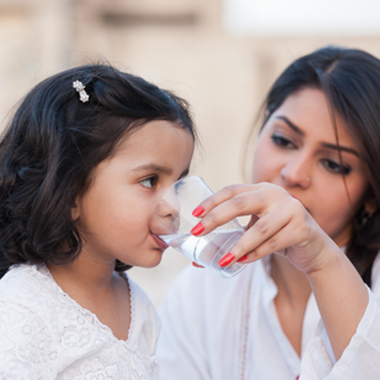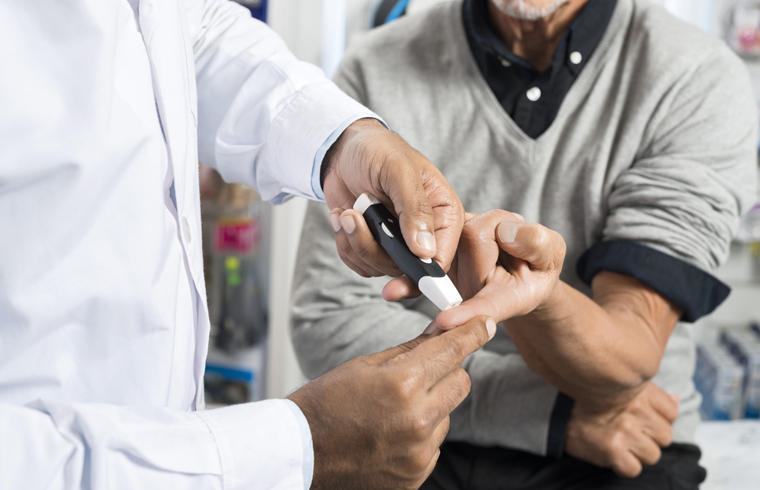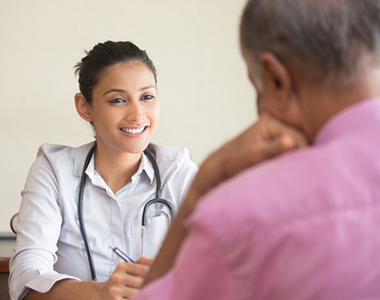Diagnosing DIABETES
Usually people with diabetes will experience symptoms including: increased thirst, urination, hunger and lethargy. Some people will also have signs of slow healing of wounds or persistent infections. To diagnose diabetes, a blood sample will need to be taken.
The blood test may be either a test taken anytime during the day, a fasting test, or an Oral Glucose Tolerance Test (OGTT). The blood test will measure how much glucose is in your blood and how your body responds to it in order to determine whether it’s abnormal and indicative of diabetes. The results of the tests normally take less than 1-2 hours to determine.


Your doctor will also want to do a physical examination of your mouth, feet, eyes, abdomen, skin and thyroid gland. Your thyroid gland is located at the base of your neck and secretes hormones to regulate your body’s metabolism. Your doctor may also want to do some other tests to monitor your cardiac health and cholesterol levels. This initial assessment is important for your overall care and successfully managing your diabetes. Your doctor might also introduce you to a Credentialed Diabetes Educator (CDE), dietician and endocrinologist. Learn more about the role each of your team members will play in ensuring your diabetes is successfully managed.
Learn more about treatment options and experiencing freedom and flexibility with diabetes.
Diabetes is diagnosed when
- A random blood test result is at or above 200 mg/dL or a fasting blood test result is at or above 126 mg/dL1,2,3
- HbA1c blood test result is > 6.5% (141 mg/dL)2
- The OGTT level is >200 mg/dL 2 hours after having a sugary drink2,3
You may be interested in
- Diabetes Victoria, (2017).Diagnosis. Available at: https://www.diabetesvic.org.au/Diagnosis
- Australian Government Department of Health, (2017).Diabetes diagnosis. Health Direct. Available at: https://www.healthdirect.gov.au/diabetes-diagnosis.
- American Diabetes Association, (2018). Diagnosing diabetes. Available at: http://www.diabetes.org/diabetes-basics/diagnosis/





